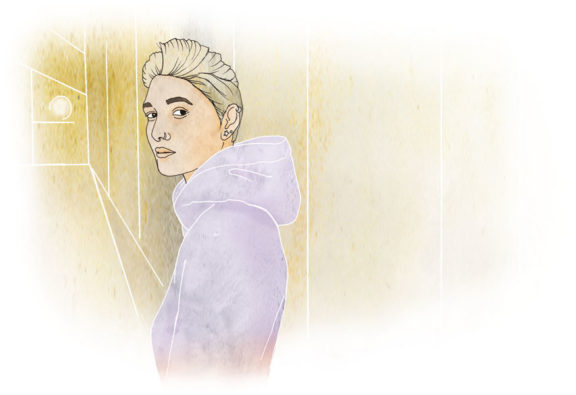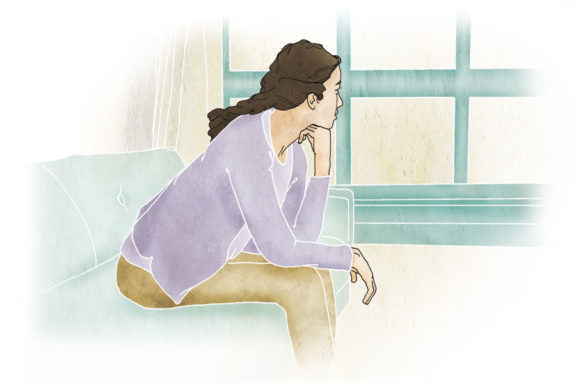Reactions to violence and abuse
Entire website
Information pages
Listen to the website – The website can be read to you. Go to the page you want read out, then click the Listen button in the player above.
If you don’t want anybody to see you’ve visited kvinnofridslinjen.se, you can hide your visit by clearing your browsing history or surfing anonymously.

Victims of violence or sexual abuse may react in different ways. Sometimes the reaction comes immediately, and sometimes it comes much later. It’s perfectly normal to react emotionally and physically to a victim of violence and threats.
People react to violence and threats in a variety of ways. Some people react immediately. For others, the reaction can take time, sometimes several years. You may be surprised by emotions that you weren’t prepared for and that you may not know how to handle.
Reactions may also be different for people who’ve witnessed violence, or people who are concerned about their own or others’ safety. If you’re worried about your own or your family’s reactions, remember it’s normal to react differently to difficult situations. Reactions to violence are individual, but some reactions are common to victims of violence, especially in cases of repeated violence.
Many people feel sadness and shame and take the blame for what’s happened. They may also feel anger and resentment, or resignation and despair. Being exposed to violence and living under severe stress can lead to what’s known as PTSD, post-traumatic stress disorder.
Violence can also cause a range of physical reactions such as headaches, stomach problems, sleeping problems, eating disorders and exhaustion. Intellectual ability may be affected, and you may become confused and have problems with remembering things. Reactions in your relationship may include loss of trust, changes in sex drive or feelings of loneliness and alienation.
Reactions to sexual assault can be very different. They can come immediately after, or much later. People may not seek help for various reasons: they might not want to talk about what’s happened, or they may be ashamed of having been raped.
If you’ve been forced to have sex, it’s good to talk about it with someone. Reactions afterwards vary, but it’s important to contact the healthcare services for support and care. Health professionals can carry out a medical assessment and examination, provide psychological support, test for sexually transmitted diseases and take samples that can be used as evidence against the perpetrator.
You don’t have to be physically injured to seek help. Nor is it necessary to report the matter to the police in order for the health service to carry out an investigation and secure evidence. If you decide to make a complaint at a later stage, the samples will be available to the police.
If you feel unwell for a long time after a sexual assault, you can seek counselling or therapy, either in a group or individually. It means a lot to many women to meet others and discover that they’re not the only ones who are suffering.
Read more:

Kvinnofridslinjen is open 24 hours a day and provides support to anyone who’s been subjected to threats and violence. Calls are free and you remain anonymous when you call.